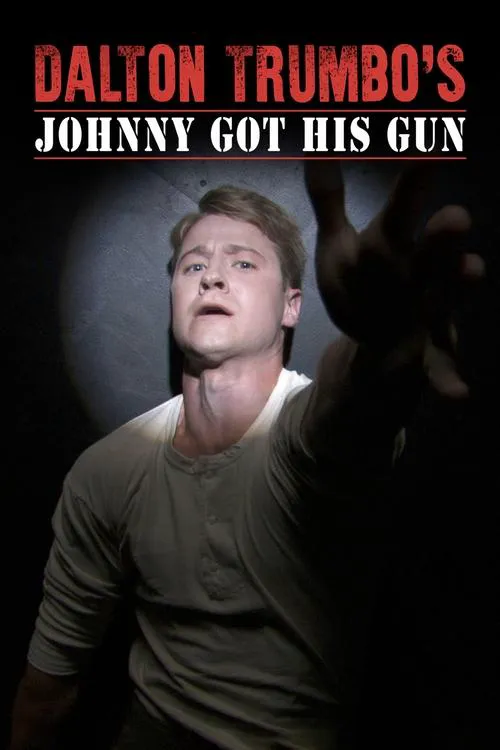Johnny Got His Gun

Plot
Joel (also referred to as Joe) Bonham, a 20-year-old American soldier, is at the forefront of World War I as it comes to a close. In the midst of a chaotic and violent battlefield, Joe is struck by a shell blast that tears apart his physical form, leaving him a quadruple amputee with no eyes, ears, nose, or mouth. In the chaos following the explosion, Joe's body is left to lay amidst the devastation. As time passes, Joe slowly comes to, trapped in a world of immense pain and isolation. His consciousness is dimly lit, and his perceptions are limited by the confines of his own broken body. The damage is not just physical, but also emotional; Joe's world is dark and desolate. Initially disoriented, he struggles to comprehend the reality of his situation, unsure of how to cope with the extent of his injuries. However, it is not long before Joe begins to grasp the true severity of his condition. He is unable to see, hear, breathe, or speak, rendering him mute and helpless. In desperation, he resorts to tapping on his forehead, a morse code system, as a last resort to communicate with the outside world. Through these feeble tapping gestures, Joe struggles to be heard, pleading his caretakers to assist him in a futile attempt to connect with humanity. Joe's primary preoccupation is the display of the true cost of war, and through his morse code tapping, he appeals to those around him to recognize his presence, not merely as a specimen to be studied or exploited, but as a man who has given his life in the pursuit of a senseless cause. His vision of being displayed becomes an end goal; he sees it as a poignant reminder that will help raise awareness about the devastating consequences of war. With an abundance of wit and determination, Joe utilizes his knowledge and experiences to outwit his caregivers and push for his wishes to be honored. He knows that if he can convey his thoughts, he can persuade people around him to recognize the human value in his broken form. In doing so, he sets out to challenge societal norms and conventions, defying the notion that the only currency for life worth living is its ability to function physically. Joe's imagination becomes an anchor, as it is here that he escapes the confines of his broken body, connecting him to memories of his life before this horrific moment. Memories of his loved ones, family, and past experiences flood back into his mind, illuminating the path forward in a moment that seems otherwise devoid of hope. While some might suggest that Joe's efforts amount to naught, for he finds himself still trapped within a world of nothingness, his determination proves to be a powerful and inspiring force. Through his unyielding resolve to be seen and understood, he reiterates the value of his broken body as a human being. By the end of the story, one is compelled to contemplate the significance of a life ravaged beyond recognition, a reflection on war and humanity as the backdrop to the entire narrative of the movie is a commentary for a war that took place long before the events of the film. Joe's plight evokes strong emotions, as it raises questions about the nature of human existence, highlighting the fundamental notion that a life has value, irrespective of its physical condition. It emphasizes that life should be regarded with an inherent value and that human identity transcends the physical. In the face of unimaginable pain and suffering, Joe finds the strength to persevere, illuminating the resilience of the human spirit. In a poignant reminder, Johnny Got His Gun leaves its audience grappling with questions of the human condition and the true cost of war; will those in power pay heed to Joe's plight, recognizing that even in the most hopeless of circumstances, there remains the indomitable spirit of humanity?
Reviews
Recommendations


